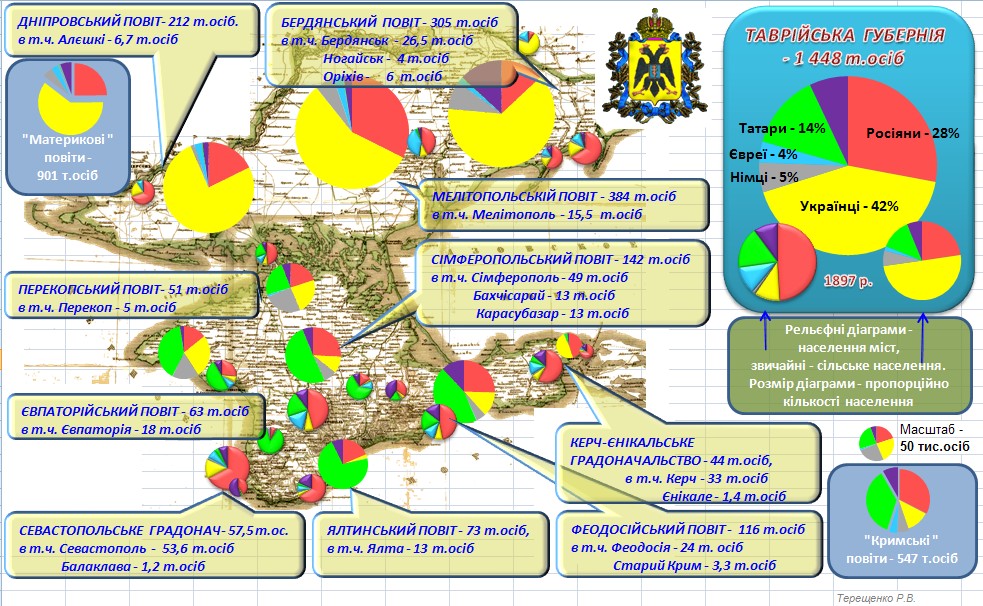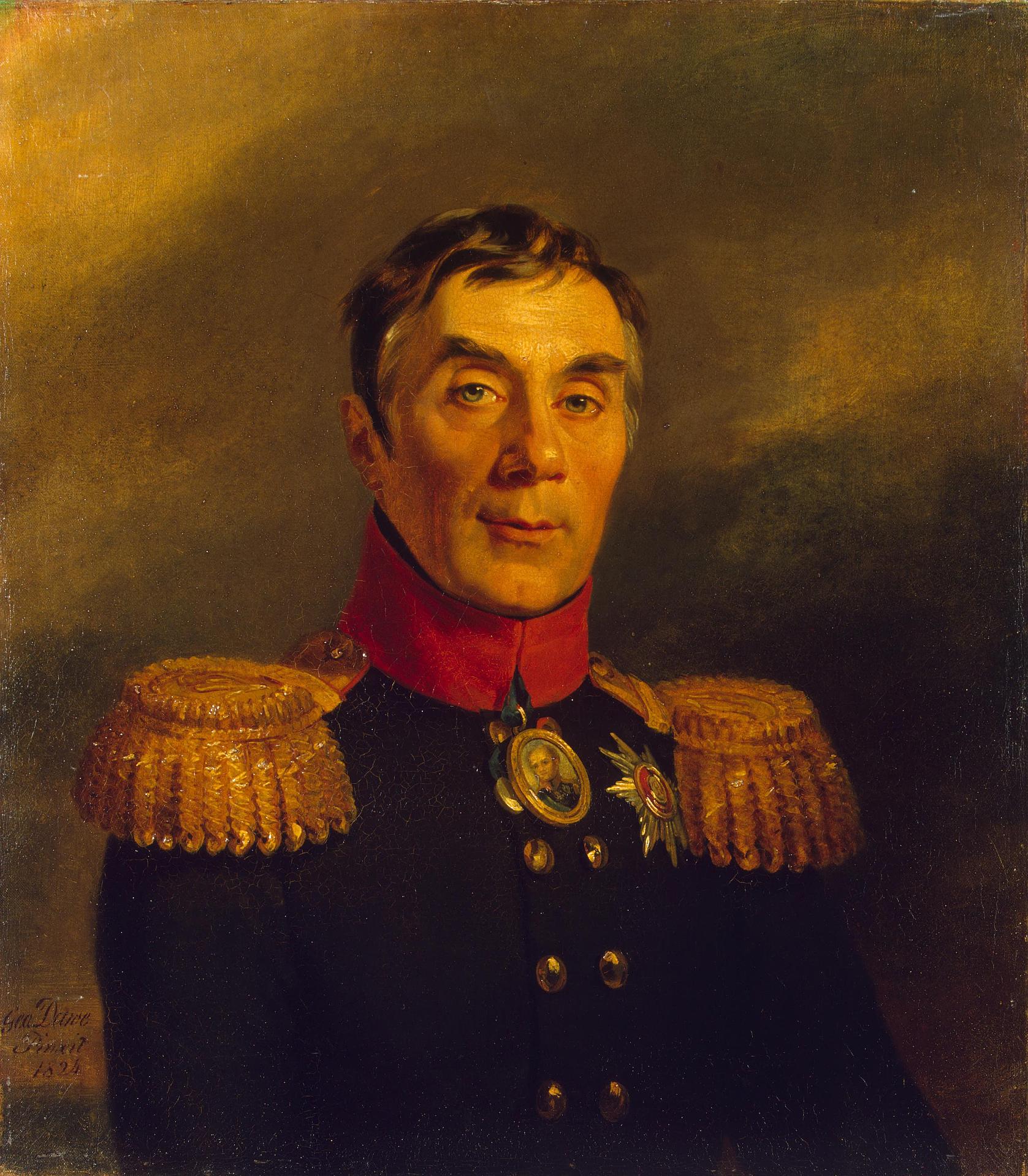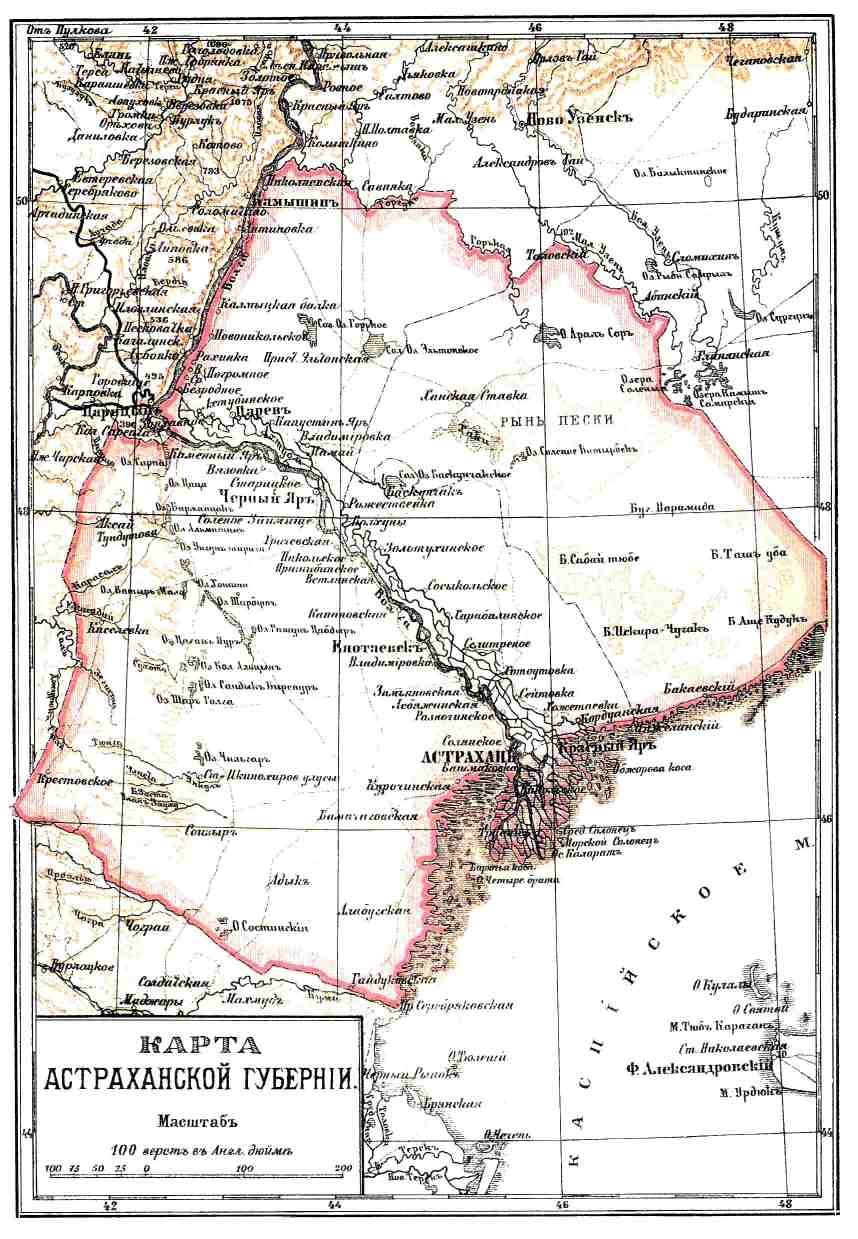|
Dmitry Mertvago
Dmitry Borisovich Mertvago (16 August 1760, Mertovshchina village, near the town of Alatyr, Kazan Governorate, Russian Empire – 5 July 1824, Moscow) was a Russian official, senator, Privy Councillor (1817), Tauride Civil Governor (1803–07), Provisions Master General (1807–10), memoirist. Grandfather of Elizaveta Bezobrazova. Biography Comes from a noble family. Got a home education. In 1774, along with his family, was captured by Yemelyan Pugachev, and Dmitry's father was hanged in his own village.Russian life in the memoirs of contemporaries of the 18th century. – Moscow, 2012. p. 657 In 1775 he entered the guard as a non-commissioned officer, joined the service in 1779 as a sergeant. From 1781 in the civil service: prosecutor in Orenburg, from 1786 adviser to the civil chamber in Ufa, from 1787 adviser to Ufa provincial government. He married one of the daughters of state councilor Mark Poltoratsky. From 1797 he served in the Provisional expedition of the College of W ... [...More Info...] [...Related Items...] OR: [Wikipedia] [Google] [Baidu] |
Taurida Governorate
The Taurida Governorate (russian: Тавріическая губернія, modern spelling , ; crh, script=Latn, Tavrida guberniyası, ) or the Government of Taurida, was a historical governorate of the Russian Empire. It included the Crimean Peninsula and the mainland between the lower Dnieper River and the coasts of the Black Sea and Sea of Azov. It was formed after the Taurida Oblast was abolished in 1802 in the course of Paul I's administrative reform of the southwestern territories that had been annexed from the Crimean Khanate. The governorate's centre was the city of Simferopol. The province was named after the ancient Greek name of Crimea - Taurida. Today the territory of the governorate is part of the Crimea, Kherson, and Zaporizhzhia regions of Ukraine. Administrative divisions The governorate comprised three counties (uyezds) on the mainland: * Berdyansky Uyezd, centred in Berdyansk * Dneprovsky Uyezd, Oleshky * Melitopolsky Uyezd, Melitopol and five counties pl ... [...More Info...] [...Related Items...] OR: [Wikipedia] [Google] [Baidu] |
Aleksey Arakcheyev
Count Alexey Andreyevich Arakcheyev or Arakcheev (russian: граф Алексе́й Андре́евич Аракче́ев) ( – ) was an Imperial Russian general and statesman during the reign of Tsar Alexander I. He served under Tsars Paul I and Alexander I as an army commander and Inspector of Artillery. He had a violent temper, but was a competent artillerist, and is known for his reforms of Russian artillery known as the "System of 1805". When Alexander was succeeded by Nicholas I, he lost all his offices. Early years Count Arakcheyev was born on his father's estate in Garusovo, in Vyshnevolotsky Uyezd (at the time a part of Novgorod Governorate, from 1796 part of Tver Governorate). He was educated in arithmetic by a priest, and though he shone at arithmetic, he never mastered writing and grammar. In 1783, with the help of General Peter Ivanovich Melissino, Arakcheyev enrolled in the Shlyakhetny artillery school in Saint-Petersburg. By 1787 he had become a lieutenant i ... [...More Info...] [...Related Items...] OR: [Wikipedia] [Google] [Baidu] |
Senators Of The Russian Empire
A Senator is a member of a senate, such as the United States Senate. Senator or Senators may also refer to: People *Senator (bishop of Milan) (died 475), also known as Senator of Settala *Senator (consul 436), a politician of the Eastern Roman Empire *Henry of Castile the Senator (1230–1303), Castilian infante; the fourth son of Ferdinand III of Castile by Beatrice of Swabia *"The Senator", nickname for American jazz bassist Eugene Wright, member of The Dave Brubeck Quartet *Hermann Senator (1834–1911), German internist physician * Ronald Senator (1926–2015), British composer Sport teams *Ottawa Senators, a Canadian hockey team *Washington Senators (1961-1971), a U.S. baseball team in the American League, now the Texas Rangers * Washington Senators (1901–1905 and 1956–1960), a U.S. baseball team in the American League, based in Washington from 1901 to 1960 though officially named the Nationals during 1905–1955, now the Minnesota Twins *Washington Senators (1891-1899), ... [...More Info...] [...Related Items...] OR: [Wikipedia] [Google] [Baidu] |
1824 Deaths
Eighteen or 18 may refer to: * 18 (number), the natural number following 17 and preceding 19 * one of the years 18 BC, AD 18, 1918, 2018 Film, television and entertainment * ''18'' (film), a 1993 Taiwanese experimental film based on the short story ''God's Dice'' * ''Eighteen'' (film), a 2005 Canadian dramatic feature film * 18 (British Board of Film Classification), a film rating in the United Kingdom, also used in Ireland by the Irish Film Classification Office * 18 (''Dragon Ball''), a character in the ''Dragon Ball'' franchise * "Eighteen", a 2006 episode of the animated television series ''12 oz. Mouse'' Music Albums * ''18'' (Moby album), 2002 * ''18'' (Nana Kitade album), 2005 * '' 18...'', 2009 debut album by G.E.M. Songs * "18" (5 Seconds of Summer song), from their 2014 eponymous debut album * "18" (One Direction song), from their 2014 studio album ''Four'' * "18", by Anarbor from their 2013 studio album '' Burnout'' * "I'm Eighteen", by Alice Cooper common ... [...More Info...] [...Related Items...] OR: [Wikipedia] [Google] [Baidu] |
1760 Births
Year 176 ( CLXXVI) was a leap year starting on Sunday (link will display the full calendar) of the Julian calendar. At the time, it was known as the Year of the Consulship of Proculus and Aper (or, less frequently, year 929 ''Ab urbe condita''). The denomination 176 for this year has been used since the early medieval period, when the Anno Domini calendar era became the prevalent method in Europe for naming years. Events By place Roman Empire * November 27 – Emperor Marcus Aurelius grants his son Commodus the rank of ''Imperator'', and makes him Supreme Commander of the Roman legions. * December 23 – Marcus Aurelius and Commodus enter Rome after a campaign north of the Alps, and receive a triumph for their victories over the Germanic tribes. * The Equestrian Statue of Marcus Aurelius is made. It is now kept at Museo Capitolini in Rome (approximate date). Births * Fa Zheng, Chinese nobleman and adviser (d. 220) * Liu Bian, Chinese emperor of the Han Dynasty ( ... [...More Info...] [...Related Items...] OR: [Wikipedia] [Google] [Baidu] |
Paul I Of Russia
Paul I (russian: Па́вел I Петро́вич ; – ) was Emperor of Russia from 1796 until his assassination. Officially, he was the only son of Peter III of Russia, Peter III and Catherine the Great, although Catherine hinted that he was fathered by her lover Sergei Saltykov.Aleksandr Kamenskii, ''The Russian Empire in the Eighteenth Century: Searching for a Place in the World'' (1997) pp 265–280. Paul remained overshadowed by his mother for most of his life. He adopted the Pauline Laws, laws of succession to the Russian throne—rules that lasted until the end of the Romanov dynasty and of the Russian Empire. He also intervened in the French Revolutionary Wars and, toward the end of his reign, added Kingdom of Kartli-Kakheti, Kartli and Kakheti in Eastern Georgia into the empire, which was confirmed by his son and successor Alexander I of Russia, Alexander I. He was ''de facto'' Grand Master (order), Grand Master of the Knights Hospitaller, Order of Hospitallers from ... [...More Info...] [...Related Items...] OR: [Wikipedia] [Google] [Baidu] |
Pugachev's Rebellion
Pugachev's Rebellion (, ''Vosstaniye Pugachyova''; also called the Peasants' War 1773–1775 or Cossack Rebellion) of 1773–1775 was the principal revolt in a series of popular rebellions that took place in the Russian Empire after Catherine II seized power in 1762. It began as an organized insurrection of Yaik Cossacks headed by Yemelyan Pugachev, a disaffected ex-lieutenant of the Imperial Russian Army, against a background of profound peasant unrest and war with the Ottoman Empire. After initial success, Pugachev assumed leadership of an alternative government in the name of the late Tsar Peter III and proclaimed an end to serfdom. This organized leadership presented a challenge to the imperial administration of Catherine II. The rebellion managed to consolidate support from various groups including the peasants, the Cossacks, and Old Believers priesthood. At one point, its administration claimed control over most of the territory between the Volga River and the Urals. On ... [...More Info...] [...Related Items...] OR: [Wikipedia] [Google] [Baidu] |
Philaret Drozdov
Metropolitan Philaret (secular name Vasily Mikhaylovich Drozdov, Василий Михайлович Дроздов; 26 December 1782 – 1 December 1867) was Metropolitan of Moscow and Kolomna and the most influential figure in the Russian Orthodox Church for more than 40 years, from 1821 to 1867. He was canonized on 13 October 1994 and his feast day is celebrated on November 19. Life He was born in Kolomna as Vasily Drozdov (russian: Василий Михайлович Дроздов). His father was a member of the clergy. Vasily was educated at the seminary of Kolomna, where courses were taught in Latin; and then at the Troitse-Sergiyeva Lavra, and on the completion of his studies was at once appointed professor in the latter. He became preacher of the lavra in 1806, and in 1808, received the monastic tonsure and was named Philaret after Saint Philaret the Merciful. In 1809 he was appointed professor of theology in the ecclesiastical academy of Alexander Nevsky Lavra in ... [...More Info...] [...Related Items...] OR: [Wikipedia] [Google] [Baidu] |
Caucasus Governorate
Caucasus Governorate (russian: link=no, Кавказская губерния, ''Kavkazskaya guberniya'') was an administrative division (a '' guberniya'') of the Russian Empire, which existed from 1802 until 1822. Its seat was located in Georgiyevsk. The governorate was located in the south of the European part of the Russian Empire. In 1822, the governorate was abolished and transformed into Caucasus Oblast, with the administrative center in Stavropol. In terms of modern administrative divisions of Russia, the area of Caucasus Governorate is currently split between Stavropol and Krasnodar Krais, Rostov Oblast, and the Republics of Kabardino-Balkaria, North Ossetia–Alania, Ingushetia, Chechnya, Dagestan, and Kalmykia, with the major part of it being located in Stavropol Krai. History Russian colonization of the Northern Caucasus started in the 1770s. In 1785, Caucasus Viceroyalty was established. It consisted of Caucasus Oblast with the seat in Yekaterinograd and Ast ... [...More Info...] [...Related Items...] OR: [Wikipedia] [Google] [Baidu] |
Astrakhan Governorate
The Astrakhan Governorate () was an Imperial, Republican, and Soviet Russian administrative division (), which existed from 1717 – 1929. Created from separating the southwestern part of the Kazan Governorate, by Peter I's Reform in 1717. And abolished by the Bolshevik's administrative reform in 1928, where the governorate became part of Lower Volga Oblast (later Lower Volga Krai). The administrative center of the governorate is Astrakhan. Geography Geographical position The Astrakhan Governorate was located in the southeast of the European part of the Russian Empire, between 45° and 51° north latitude and 43° and 51° east longitude. The greatest length of the governorate from north to south is up to , and the greatest width from west to east was . Location of the Governorate concerning modern administrative boundaries On the territory of the former Astrakhan Governorate (within the borders of 1914), currently, the Astrakhan Oblast and the Republic of Kalmykia, ar ... [...More Info...] [...Related Items...] OR: [Wikipedia] [Google] [Baidu] |
Alexander I Of Russia
Alexander I (; – ) was Emperor of Russia from 1801, the first King of Congress Poland from 1815, and the Grand Duke of Finland from 1809 to his death. He was the eldest son of Emperor Paul I and Sophie Dorothea of Württemberg. The son of Grand Duke Paul Petrovich, later Paul I, Alexander succeeded to the throne after his father was murdered. He ruled Russia during the chaotic period of the Napoleonic Wars. As prince and during the early years of his reign, Alexander often used liberal rhetoric, but continued Russia's absolutist policies in practice. In the first years of his reign, he initiated some minor social reforms and (in 1803–04) major liberal educational reforms, such as building more universities. Alexander appointed Mikhail Speransky, the son of a village priest, as one of his closest advisors. The Collegia were abolished and replaced by the State Council, which was created to improve legislation. Plans were also made to set up a parliament and sign a constitu ... [...More Info...] [...Related Items...] OR: [Wikipedia] [Google] [Baidu] |
Ministry Of War Of The Russian Empire
Ministry of War of the Russian Empire, (russian: Военное министерство, ''Military Ministry'') was an administrative body in the Russian Empire from 1802 to 1917. It was established in 1802 as the ''Ministry of ground armed forces'' (russian: Министерство военно-сухопутных сил) taking over responsibilities from the College of War during the Government reform of Alexander I. It was renamed to the ''Ministry of War'' in 1815. Structure At the end of the 19th century, the Ministry of War had following structure. * Military Council * War Ministry Chancellery * Grand Staff - personal matters, organization, instruction and economy of the army * His Imperial Majesty's Retinue * Departments: ** Commissariat Department ** Artillery Department ** Engineer (Military Technical) Department ** Military Medical Department ** Military Education Department ** Military Justice Department ** Department of Cossack Troops * Committees ** Committee o ... [...More Info...] [...Related Items...] OR: [Wikipedia] [Google] [Baidu] |


.jpg)

.jpg)

_1890-1900.jpg)